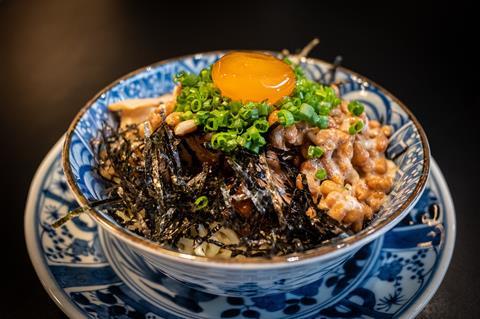Atherosclerosis, a chronic condition characterized by the accumulation of lipid and inflammatory cells within the blood vessel walls, causes cardiovascular diseases, such as heart disease and stroke.

Natto, a food rich in vitamin K2, has shown promise in mitigating cardiovascular diseases by enhancing arterial flexibility and modulating inflammatory responses. However, the reason why natto suppresses arteriosclerosis remains elusive.
Japanese natto is made from softened soybeans that have been boiled or steamed and fermented.
This study, ’Natto consumption suppresses atherosclerotic plaque progression in LDL receptor deficient mice transplanted with iRFP-expressing hematopoietic cells’, published in Scientific Reports, employed three varieties of natto distinguished by their vitamin K2 content - namely, high vitamin K2, normal, and low vitamin K2 natto.
Reduced lesions
The research team systematically assessed the impact of natto on atherosclerosis in a mouse model over time. The findings revealed a significant reduction in atherosclerotic lesions across all natto consumption groups.
Furthermore, the intake of natto altered the composition of intestinal microflora, regulating the production of cytokines and chemokines associated with arteriosclerosis. This suggests that incorporating natto into the diet may have a therapeutic effect on arteriosclerosis.
Additionally, the study found that adding Bacillus subtilis natto to macrophages, a cell type implicated in promoting arteriosclerosis, decreased pro-inflammatory cytokines and chemokines. The effect was particularly significant with high vitamin K2 natto consumption group.
Moreover, both regular and low vitamin K2 natto increased the production of the anti-inflammatory cytokine IL-10. These findings indicate that Bacillus subtilis natto, aside from its role as an intestinal bacterium, may inhibit atherosclerosis by altering the intestinal microflora and suppressing the activation of immune cells.







No comments yet